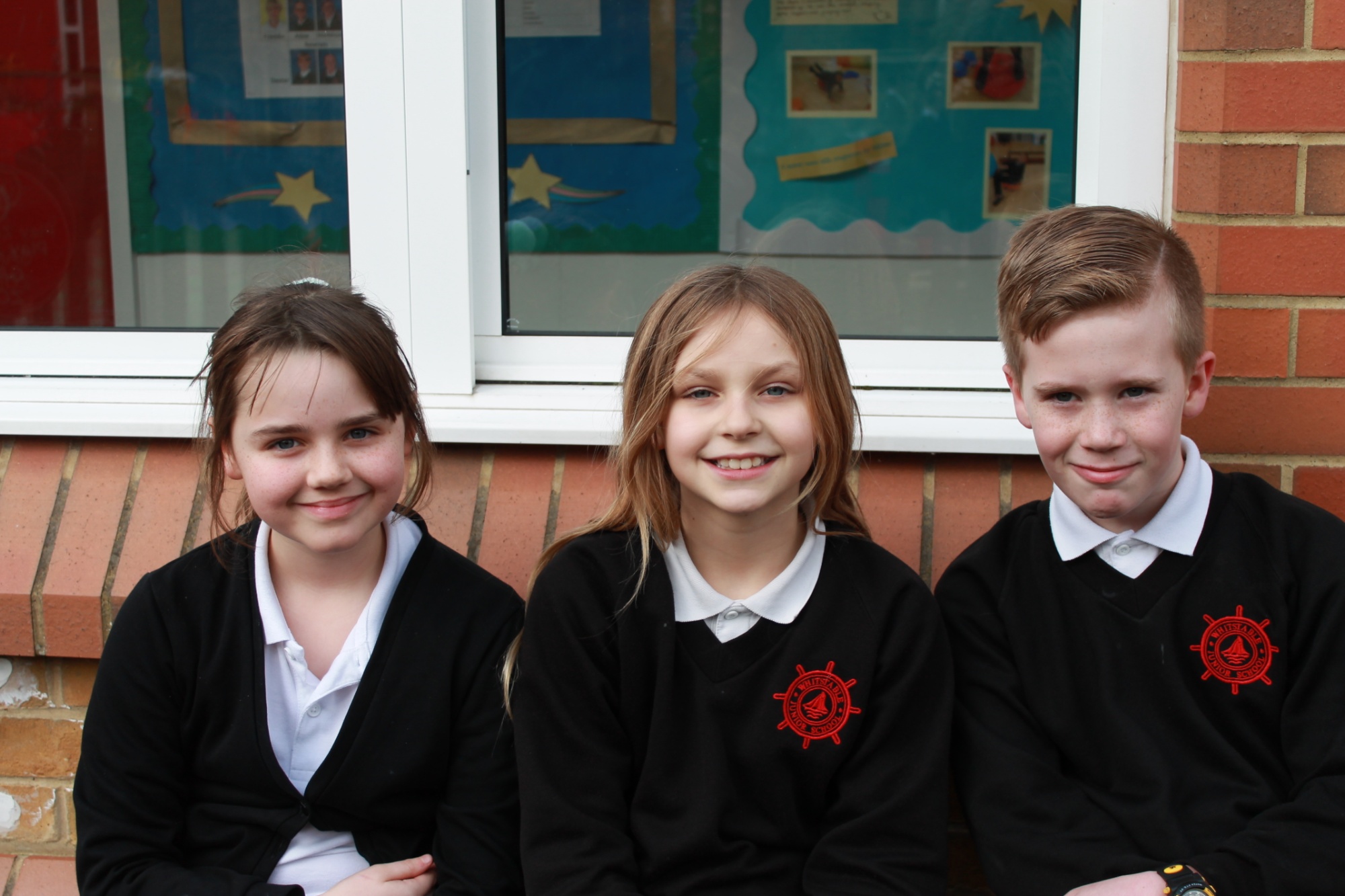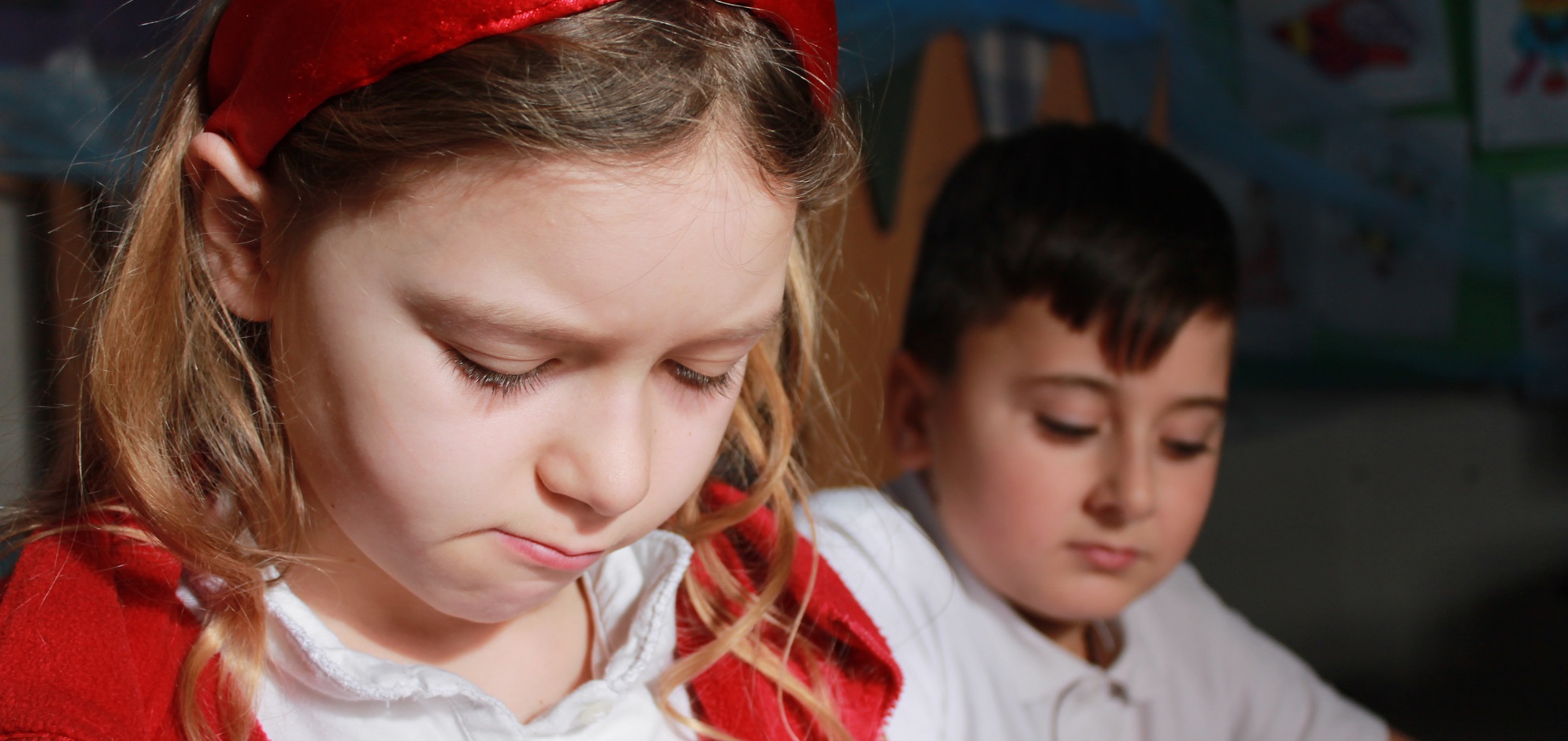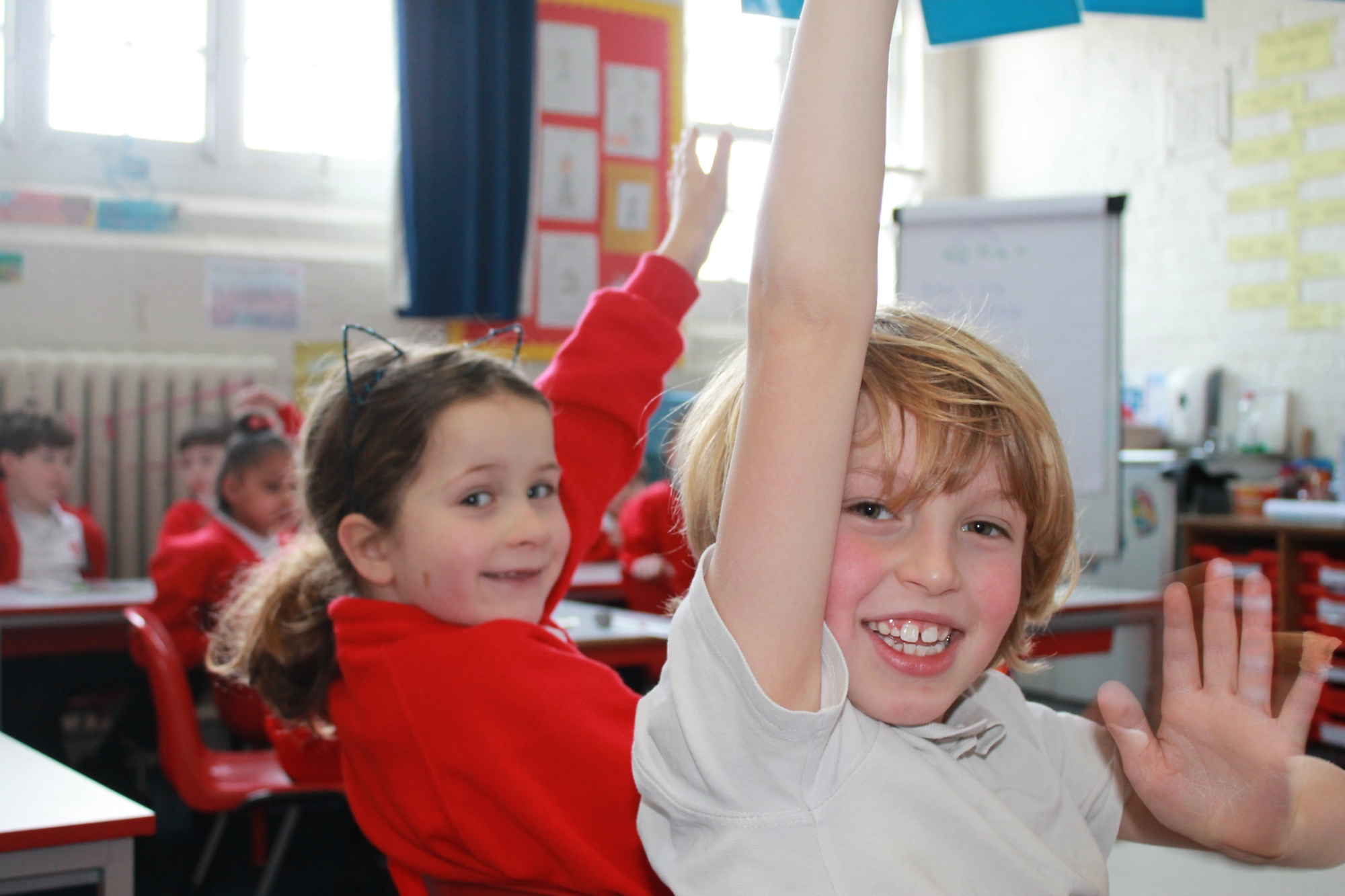Reading
Reading at Whitstable Junior School
“I have a passion for teaching kids to become readers, to become comfortable with a book, not daunted. Books shouldn't be daunting, they should be funny, exciting and wonderful; and learning to be a reader gives a terrific advantage.”
Roald Dahl
At Whitstable Junior School we believe, like Roald Dahl, that teaching children to become confident readers who develop a life-long love of reading is one of the greatest gifts of education. On this page we want to share with you how we set about teaching and promoting reading, and enlist your support in helping the children achieve these goals.
WHOLE CLASS READING
In class we teach Reading in several ways. Our Literacy curriculum is designed to be focused on exciting books which use a wonderful breadth of vocabulary, for instance The Explorer by Katherine Rundell in year 6 or The Thieves of Ostia by Caroline Lawrence in year 4. All of our lessons are underpinned by the reading domains:
- 2a give / explain the meaning of words in context
- 2b retrieve and record information / identify key details from fiction and non-fiction
- 2c summarise main ideas from more than one paragraph
- 2d make inferences from the text / explain and justify inferences with evidence from the text
- 2e predict what might happen from details stated and implied
- 2f identify / explain how information / narrative content is related and contributes to meaning as a whole
- 2g identify / explain how meaning is enhanced through choice of words and phrases
- 2h make comparisons within the text
Additionally, it is our hope to infuse children with an understanding of the joy of getting lost in a good book. As such, we have made it our aim to timetable several reading slots in the week in which the children listen to and discuss a book – be that a novel or a non-fiction text. Some books the children have been enjoying range from classics like The Hobbit and James in the Giant Peach to more modern texts like Marcus Rashford's ' You are a champion ' and recent Blue Peter Award-winning books, such as: 'Life of Riley, beginners luck'. Books are carefully selected for their relevance and diversity; hoping to challenge stereotypes.
HOME-SCHOOL READING - A PARTNERSHIP
 From Year 3, children have colour-banded books they take home to read. These books are matched to their individual abilities. The children are expected to bring their books to school every day as opportunities may arise for them to continue their reading. As children complete their books, they should be placed in an allocated box in their classroom and their books will be changed.
From Year 3, children have colour-banded books they take home to read. These books are matched to their individual abilities. The children are expected to bring their books to school every day as opportunities may arise for them to continue their reading. As children complete their books, they should be placed in an allocated box in their classroom and their books will be changed.
Different children read at different speeds and need different amounts of support, so it is a tremendous help if parents or carers can find ten minutes each day to share reading with their children.
.
Each child is provided with a Reading Log which they can mark off as they complete each book (this is kept in the school library). This allows us to track and monitor their progress across the Reading Scheme. We also find that children take pride in marking off each book and, should they lose or mislay their log, please encourage
them to get a replacement from the school office.

It is worth noting that non-fiction books are generally more difficult than story-telling fiction books. Therefore, you may find that your child sometimes brings home a book from the banding below what they are normally given.
READING BOOKS OF THEIR OWN CHOICE
In time, children progress to the point where they can read and understand what they are reading independently, which is one of the great milestones in their development. This does not mean they no longer need our support, but it does mean they can choose books to read from the class library, the school library, or from home.
It will be a great help if all readers still share their reading at home. This gives them a tremendous feeling of accomplishment, particularly as they have chosen the books they want to read, and sharing reading allows the listener to check their accuracy and comprehension. Sharing should also provide lots of topics of conversation, essential to the development of language skills.

As children develop as readers, encourage them to read a mixture of fiction, non-fiction, and poetry. Many children become so enthusiastic about reading stories that they end up on a diet of nothing but fiction. With such a wonderful wealth of books out there, we encourage them to enjoy a variety of texts and would ask you to continue keeping their Reading Logs up to date. Remind them their reading logs will be checked!
With such an ever-expanding range of children’s books, it can be difficult to find the right choices for your child. With that in mind, if you are ever looking for a new book to really inspire your child, here are some websites with wonderful suggestions:
https://www.thereaderteacher.com/
https://www.booktrust.org.uk/books-and-reading/bookfinder/
THE SCHOOL LIBRARY

At Whitstable Junior School every pupil is issued with their personal library `ticket (which is kept in school). They can read and share their choices both in school and at home. Some children may choose books above their decoding ability; this is fine – in fact, we hope children will feel confident to pick up books which will teach them new words – but it is really helpful if they have an adult with whom they can share at least some reading with.
BOOKMARKS & READING PRIZES
Enjoying reading is a reward in itself, but children, like everyone else, enjoy the recognition of their efforts and achievements, so at WJS we have developed a scheme of simple rewards having learned that every little helps.
Children on the Reading Scheme are issued with a Bookmark to help encourage reading. We will be grateful if adults initial the Bookmark every time their child has been listened to while reading at home. Once a child has completed both sides of their bookmark, they are then presented with a prize in school. This can become quite competitive.
PRIZES
In Lower School (Years 3 and 4) children are issued with Reading Badges.
- Bronze 1

- Silver 1
- Gold 1
- Bronze 2
- Silver 2
- Gold 2
- Platinum 1
- Platinum 2
In Upper School (Years 5 and 6) the same structure of rewards is followed, but pupils are rewarded with wristbands. They, too, can become quite competitive.
If a child loses a badge or wristband, a replacement may be purchased for £1.
a wider appreciation of reading
Every year, like the majority of schools in the UK, we celebrate several key days and weeks focusing on either books or inspirational authors.
During the first few weeks of every year, we take part in Roald Dahl Day which coincides with his birthday on 13th September (or as near to it as we can get). As one of the most beloved children’s authors of all time, it is always a joy to share our love for his wonderful books and poetry.
National Poetry Day takes place in October, and we always use this as an opportunity to share some of our favourite poetry with the children – be that modern poets like Benjamin Zephaniah, the classics of Robert Louis Stevenson, or the very silly poems of Spike Milligan.
During the term leading up to Christmas, we take part in Arts Week. This is a fairly new endeavor for us but has been an absolute hit with children and staff alike. For this week, each year group immerses themselves in a delightful book and creates a number of artistic responses, including artwork, poetry, writing, and music.



February is always a term that brings with it a chill in the air and makes us yearn for the warmth of a crackling fire. With that spirit in mind, we take part in storytelling week, in which we uncover the lost art of retelling fables, myths, and legends of old.
In early March, we have one of the most anticipated weeks of the year: Book Week! Every year this is explored differently, be that through a single book spread across the school or focusing on a few books in different year groups. As you can see from the images, the children adore this week and the work produced is always second to none.



Later in March, we take part in Shakespeare Week. In previous years, we have been lucky enough to see groups perform a play in school – in 2018, a company presented A Midsummer Night’s Dream which then lead to a week of fantastic work focused around The Bard.


One lucky year group then was able to take part in a workshop led by the actors which, as you can see, was a great success. 











